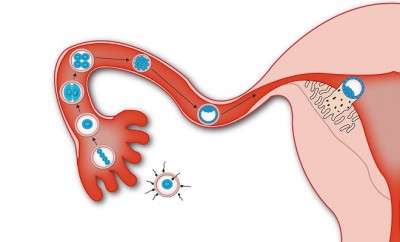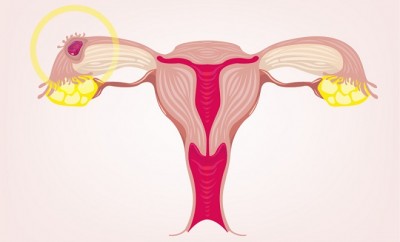Negative Pregnancy Test But Feel Pregnant. Causes of False Pregnancy Test
It happens quite often that a woman is eager to buy a home pregnancy test from the drugstore and take the test as soon as possible. In such situations, negative pregnancy test is rather disappointing. In fact, with no regard to your attitude towards possible conception, false pregnancy test is within the realms of possibility. Pregnancy tests can be both false negative and false positive. Apart from too early testing, there are many other factors, which can explain the situation. Regardless the test result, one should also consider the presence of pregnancy symptoms, as well as consult a gynecologist for an ultrasound examination, which will certainly provide for the most accurate result.
There are two common types of examinations that can detect pregnancy in the earliest stages, and those are enzyme-linked immunoassay and home pregnancy test, which detects the HCG hormone in the urine. Actually, both these tests are based on the detection of chorionic gonadotropin (“pregnancy hormone”, HCG) in blood or urine.
Blood analysis can be made 4-5 days after implantation (on the 25-26 day of a 28-day cycle) while a home pregnancy test requires another 1-2 days of waiting. The fact is that sensitivity of the first method is constrained to a minimal level of HCG in the blood, no less than 25 mIU/ml.
Sensitivity of home pregnancy tests is normally indicated on the package. Tests, with the note “20 mIU/ml” are best to be used in the first days of the expected period, when the much desired level of “pregnancy hormone” will be achieved in urine as well.
Can a blood pregnancy test be wrong?
Immunoassay is traditionally considered the most reliable method, however, this examination is appropriate only in the earliest stages of pregnancy. As soon as the urine HCG level reaches the relevant mark, home pregnancy tests become no less reliable, thus are considered to be the most popular method of screening early pregnancy.
Laboratory analysis can accurately define the level of “pregnancy hormone” in the blood. The result of the analysis is considered negative in case the HCG level is below the mark, at which it should be at the assumed gestational age.
Negative blood pregnancy test can be associated with:
- Absence of conception;
- Too early pregnancy, when the HCG can not yet be defined;
- Ectopic pregnancy, in which case secretion of the hormone is slower and less intensive;
- Threatened miscarriage – the HCG level drops before fetal wastage, which may be interpreted by the analysis as incompatibility for the stated period of pregnancy.
The following factors should also be listed among the factors that can cause negative home pregnancy test:
- Improper use of the test – morning urine (the first urine during the day) contains the highest level of chorionic For this reason, most of the test producers recommend using morning urine for testing. Anyway, for an accurate result, it is required to follow all the instructions, indicated on the package;
- Wrongly selected test – some of them have notes “sensitivity 40 mIU/ml”. Consequently, there is no point in using such tests on the first day of your delay;
- Poor quality test – the test can simply be old, inappropriately stored, et;
- Certain kidney diseases may provoke changes in the urine consistency, which can affect the test result.
What if I have a false pregnancy test?
Quite often, due to too early testing or other factors, mentioned above, the woman may still feel pregnant, even after a negative pregnancy test. It is possible that she was observing implantation bleeding after unprotected sex or let it even be her intuition.
Turing attention to the following pregnancy symptoms can help to dispel or confirm your doubts, even before consulting a doctor:
- Morning nausea and vomiting;
- Changes in taste preferences (Cravings or food aversions);
- Increased sensitivity to odors;
- Swollen and sore breasts;
- Fatigue, etc.
Other variants of a false pregnancy test
Apart from false negative, there is also a false positive variant of test result, which can be associated with:
- A tumor, which produces HCG;
- Hemolysis – a blood pathology, which involves lysis of erythrocytes;
- Lipidemia (high content of lipids in the blood);
- Failure to comply with the instruction of the test.
Thus, it’s not proper to rely exclusively on the level of the so-called “pregnancy hormone” in the blood. It is best advisable to see your doctor, who will confirm the fact of pregnancy and normal development of the embryo with the help of an ultrasound examination. It is possible to see the ovum into the uterine cavity as early as the 5th week of childbearing, because the heartbeat of your child can de distinctly heard after the 6th week.














